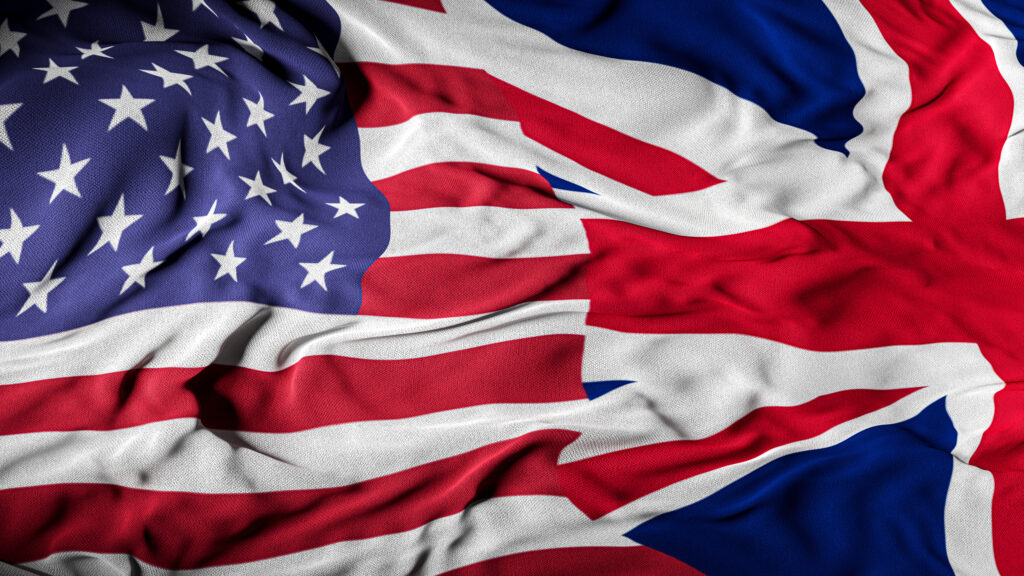The NPA has warned government ministers that a failure to recognise the differences in animal welfare standards between the US and UK under a future trade deal would be a ‘betrayal’ of UK farmers.
In a letter to trade minister Douglas Alexander highlighting some of the industry’s concerns over a potential US trade deal, NPA chair Rob Mutimer seeks clarity that ministers’ assurances that UK food standards will be upheld in any future UK-US trade deal will include animal welfare standards.
Prominent UK ministers, including the Chancellor, Rachel Reeves, have clearly stated, however, that UK food standards and the Sanitary and Phytosanitary regime would be a ‘red line’ and would not be compromised in any future deal.
Prominent UK ministers, including Chancellor Rachel Reeves, have clearly stated that UK food standards and the Sanitary and Phytosanitary regime are a ‘red line’ and would not be compromised in any future deal, which is being discussed against the backdrop of US president Donald Trump’s global tariff policy.
It is well documented, however, that, as part of a deal, the US would like to see some of the current restrictions on its imports to the UK removed. It believes some of the restrictions, covering, for example, chlorine-washed chicken or hormone-treated beef, are an unfair barrier to trade.
Assurances
In his letter to the Trade Minister, Mr Mutimer welcomes the UK government’s assurances but seeks further clarity on what exactly this would mean, particularly in relation to animal welfare standards, which are very different in the two countries.
“We feel this leaves a significant gap in terms of the methods of production that are acceptable in the US, particularly on animal welfare, compared to the UK,” he writes.
“To give just one example, sow stalls are still used across the USA. Not only has their use been banned in the UK since 1999 but the British pig industry has also significantly reduced its antibiotic use, 69% since 2015, with an ongoing commitment to reduce this further.
“Both of these measures make the UK’s cost of production substantially more expensive than that in the USA.
“As part of the deal currently being negotiated with the USA, and as part of any increased access for American agricultural products, we strongly urge the government to ensure that this difference in animal welfare standards and methods of production is recognised.
“Allowing goods into the UK produced to standards that would not be legal for our producers, would represent a betrayal to British farmers.”
International trade
Mr Mutimer stresses that as a fundamental principle, the NPA supports international trade, which helps to meet the UK’s demand for pigmeat and compliments domestic production, helping to balance the pig carcase.
“However, it is vital that this is done in such a way that protects the UK’s high production standards and ensures there is an equivalence in all trade deals,” he says.
The NPA supports the NFU’s calls for a set of core production standards that would apply to both domestically produced and imported food in order to be sold in the UK. “Implementing core standards will prevent UK farmers’ animal welfare and sustainability efforts from being undermined and ensure that the UK does not simply offshore food production to countries with less sustainable systems and lower animal welfare standards,” Mr Mutimer adds.
He ends by requesting a meeting with Mr Alexander to discuss the matter further and share the concerns of NPA members.
Reciprocal access
NFU President Tom Bradshaw said: “In any trade deal with the US, ministers must uphold their commitments and ensure that food that would be illegal to produce here from a food safety, animal welfare or environmental perspective is not granted access to our market.
“But it’s equally vital to understand that whilst protecting UK food safety standards is essential, that can’t be top cover for a deal which gives US agriculture the access to UK markets it has sought for decades without giving UK farmers and growers reciprocal access back.
“A deal in which we open our markets to US produce in return for nothing more than the reduction or removal of tariffs which didn’t exist eight weeks ago would be an unimaginable failure and is not a deal in anything but name.”




